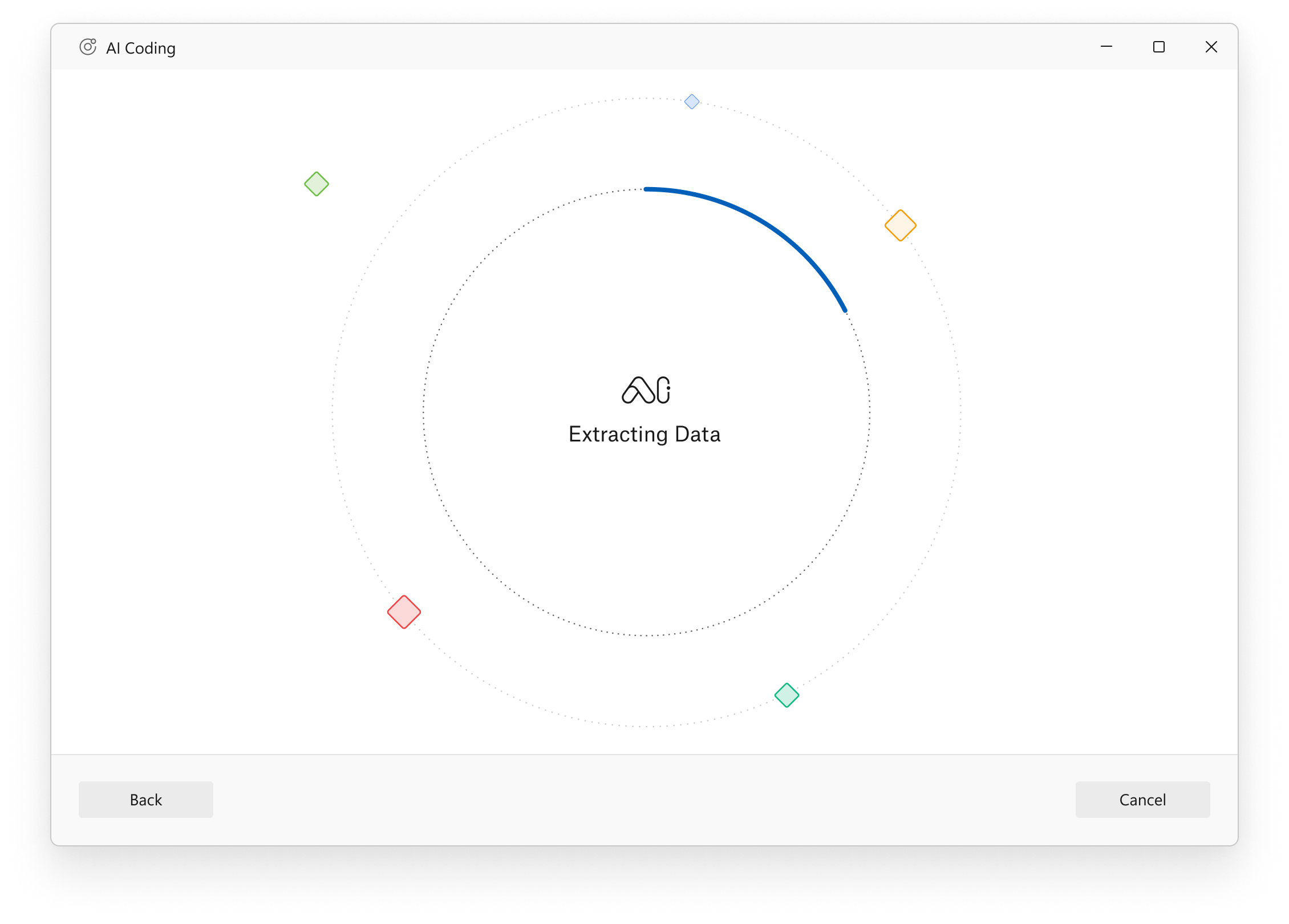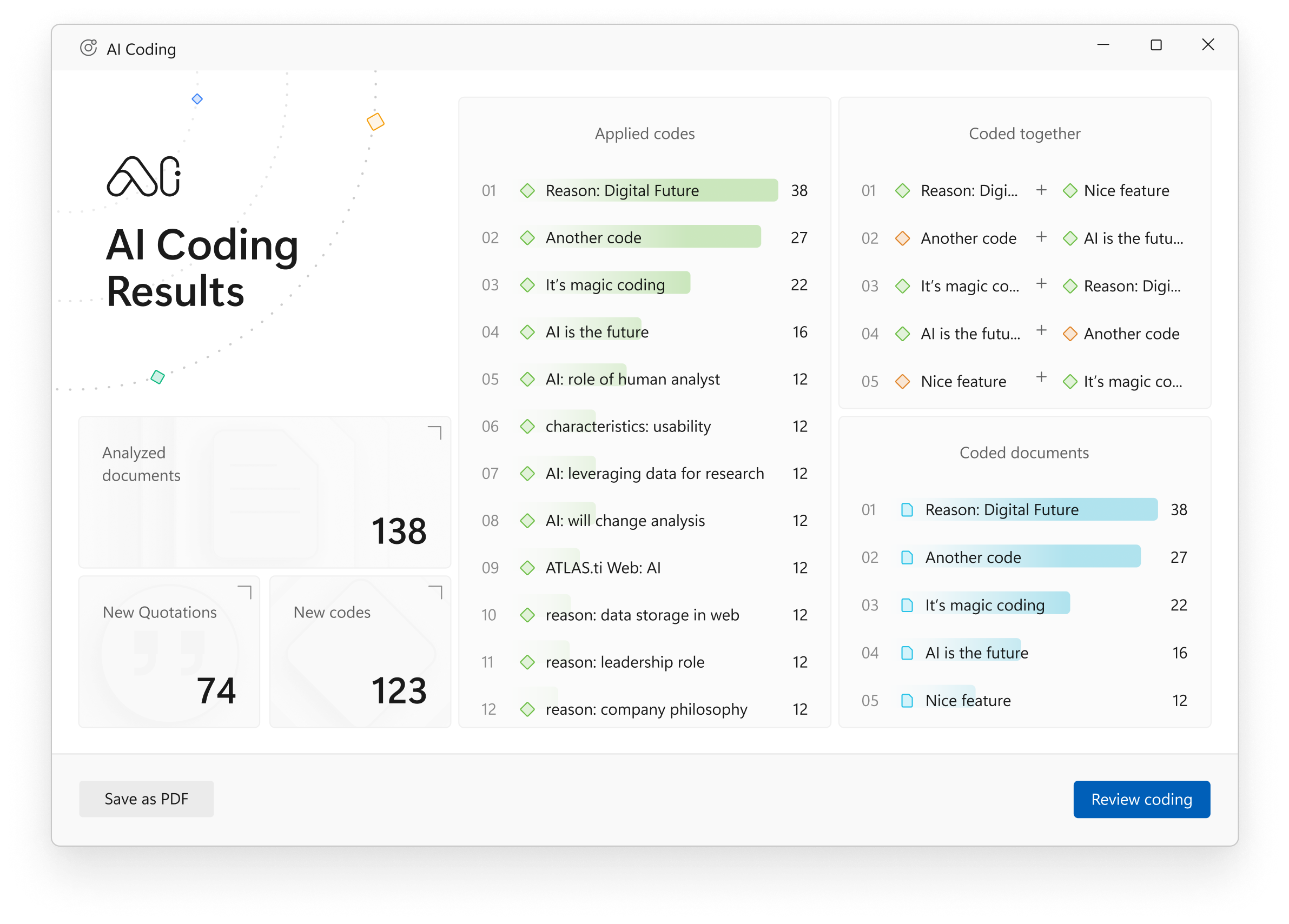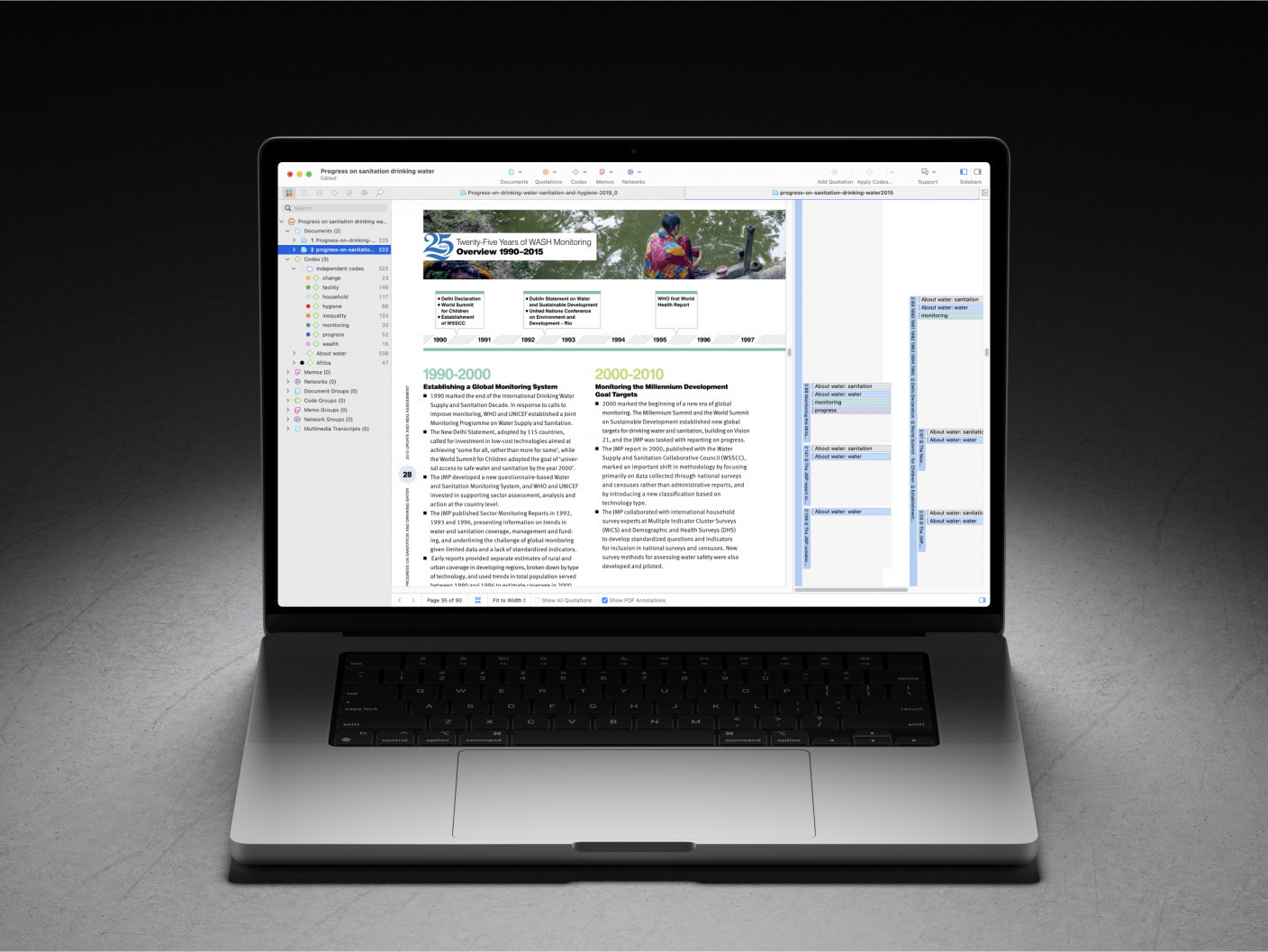Unlocking AI Power for Qualitative Insights - An Interview with ATLAS.ti CEO Jörg Hecker
Discover ATLAS.ti's AI Solution: Streamline Your Data Coding and Save Time
Gone are the days of countless hours spent manually coding data. ATLAS.ti offers a free AI solution that can do open and descriptive coding for text material fully automatically, saving you an enormous amount of time and energy.
In this interview you will learn more about AI coding, the background, why ATLAS.ti decided to take this important step in qualitative analysis for the research community worldwide and what it means to researchers in practice. The interview was conducted by Dr. Neringa Kalpokas, Director Training & Partnership Development ATLAS.ti with the CEO of ATLAS.ti Jörg Hecker
ATLAS.ti has now integrated OpenAI into its analysis tools, both in the desktop version for Windows and Mac and in the web version. What does this mean for the user of the software?
Jörg Hecker: Well, understanding the meaning of your data is time-consuming and exhausting. That's why we've developed a new tool that processes the meaning of text to help you get accurate and helpful insights quickly! With the free update to version 23.1, users can process their data with the new AI Coding tool, which provides a summary visualization of the results that makes educated predictions about which codes or tags, as some people say, might be useful to apply to the data. In other words, this tool creates a complete code set and also makes statements about which codes occur together. We believe AI coding can save researchers an incredible amount of time and energy, allowing them to easily explore the data and focus on more critical analysis. ATLAS.ti is widely used by researchers and students from all fields, business people, UX designers, marketing specialists, consultants, and anyone who needs to analyse data. With its generative AI capabilities, ATLAS.ti enables all of them and for all of their applications to perform faster, higher-quality analyses that lead to informed decisions based on solid data.

AI is currently evolving very quickly and is being used in many different areas. Can you tell us more about the AI model behind AI Coding?
Jörg Hecker: We have partnered with OpenAI, the leading AI research organization. With their help, we integrated the latest GPT model into AI Coding so that we can bring AI to researchers everywhere, at no additional cost to our license users. GPT is a sophisticated language model that uses state-of-the-art techniques such as reinforcement learning, deep learning, and transfer learning.
Can you tell us more about how GPT can benefit researchers using ATLAS.ti?
Jörg Hecker: What we really like about GPT is its ability to process and understand text at an incredibly high level, thanks to a powerful language model based on a trillion parameters. OpenAI researchers have extensively refined GPT using advanced machine learning techniques to improve its language capabilities, and it has been trained with large human-generated text corpuses to ensure it matches human thought patterns. When using AI Coding with GPT, our users can rest assured that they are using a reliable tool developed by AI experts to provide the most accurate results possible.
However, there are also people who still doubt the accuracy of artificial intelligence. How did the decision to work with OpenAI come about?
Jörg Hecker: The growing capabilities of AI are becoming increasingly evident. The language model of GPT that we use now has shown significant improvements in efficiency, creativity, and language understanding. We have conducted extensive testing and are confident in its ability to understand speech broadly and deeply, giving users the means to quickly gain useful insights that can be further refined. Furthermore, several published research papers have included ChatGPT as a co-author, highlighting the impact and influence of AI on research. The continued advancements in AI technology demonstrate its promise in learning from data and solving complex problems.

How does AI work in analyzing qualitative data using ATLAS.ti?
Jörg Hecker: OpenAI's algorithms have been rigorously tested with a variety of textual data types, including scientific texts and interview transcripts, to ensure optimal performance for users of ATLAS.ti. Our team underwent extensive testing to determine the most effective methods for querying GPT, with automatic validation being performed repeatedly to ensure accuracy. By repeatedly tasking GPT with analyzing the data, we were able to achieve highly accurate and efficient automated AI coding results, thanks to OpenAI's cutting-edge machine learning algorithm.
Consider AI coding as your assistant in data analysis. ATLAS.ti AI coding generates numerous codes that accurately reflect the data's content. These codes are subordinated to a few main categories, and the tool also identifies co-occurrences. Researchers can use this overview to refine the analysis further by merging codes into larger themes, using AI coding as a starting point to develop their inquiry.
While the ATLAS.ti AI analysis tool, much like GPT, may not be perfect, nor is the individual researcher, the collaborative process of utilizing AI for data coding can greatly enhance the research experience by delivering faster and higher-quality results.
In online forums, some researchers have expressed doubt regarding the quality of research generated by AI coding compared to that of a human researcher. What is your perspective on this matter?
Jörg Hecker: Based on what I said before, this is a wrong assumption that shows how little AI has been understood. Before conducting research, it is crucial for the researcher to identify what they want to investigate and how they plan to conduct their study. Artificial intelligence can act as a helpful assistant or tool in this process. By utilizing AI, the researcher can focus on the essential aspects of their research, receive helpful suggestions, and even generate comprehensive analyses.
After AI has aided in the analysis process, the researcher can then determine which aspects of the generated results are relevant to their work. In some cases, the automatically generated analyses may be already sufficient for their needs, which can save the researcher a great deal of time and effort. But also the ability to adjust and fine-tune the suggestions provided by AI can be a great help and can speed up the process of coding enormously. However, it is important to keep in mind that the usefulness of AI-generated results ultimately depends on the specific needs and goals of the researcher.
I would like to draw a comparison to illustrate this point: Imagine you need to count all the bridges on a path between point A and point B, and the distance between the two points is quite long. In this case, it would be more efficient and quicker to use a car rather than travel on foot. However, if your task was to identify and differentiate between all the flowers and plants along a path, and the path was relatively short, using a car would be impractical. Walking would be a better option, as a car might even hinder your ability to examine the flora closely. Nonetheless, this doesn't mean that a car is useless. In the first case, it can speed up your task enormously.
But maybe also exploring the flora through a drive along the route may yield quicker results in this regard. By documenting initial observations such as the frequency and species of specific flowers while driving, it is possible to conduct an analysis that could potentially provide relevant insights for decision-making even if it is not that accurate. In certain cases, this analysis may be adequate to draw meaningful conclusions.
How do you see AI being used in research?
Jörg Hecker: To summarize my thoughts along with everything else we just said, researchers can only benefit from the use of AI tools. AI can serve as a valuable resource for researchers, providing assistance and producing analyses. Ultimately, it is up to the individual researcher to evaluate the usefulness of AI-generated results for their specific needs.
We can’t close our eyes to a new technology that has enormous potential. I think people may be initially hesitant to use it until they realise the benefits this can bring for research. With ATLAS.ti, anyone can now explore generative AI coding firsthand and make the most of it for their research.
We must also consider that we are only at the beginning of a rapidly advancing exponential development of generative AI. In very short amounts of time, better advancements of AI systems are continuously emerging. Here at ATLAS.ti, we will always do our best to integrate the latest developments in AI into ATLAS.ti so that our users can get the maximum benefit for their analyses, without having to pay anything extra to utilize these tools. We will also integrate further functionalities of AI very soon in ATLAS.ti. All the concepts are already in place, and our users can expect to use additional functionalities and tools in the coming weeks and months that will be a great help in automating the data analysis process and saving time and resources for the user of ATLAS.ti. This is just the beginning.




